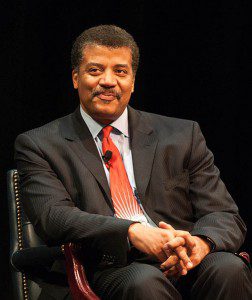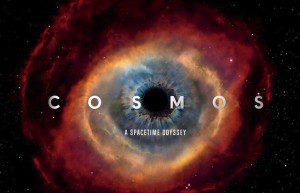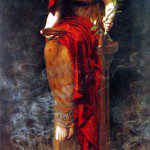
I watched the new Cosmos science TV show on Sunday night. It’s an update of the 1980 13-episode series featuring Carl Sagan. Like the original, it’s designed to make big scientific concepts interesting and accessible to ordinary people. Here are some of my random impressions:
- I can’t speak to his accomplishments as an astronomer, but as the public face of cosmology, Neil deGrasse Tyson is a worthy successor to his mentor, the great Carl Sagan, who died in 1996.
- Sagan’s fingerprints were all over the show, including his beautiful statement “we are made of starstuff.” Tyson’s story about meeting him when Tyson was 17 illustrated how Sagan wasn’t just a good scientist, he was a good person.
- The original series ran on PBS. This is on Fox and will be repeated on Mondays on National Geographic. I didn’t pick up any of Fox News’ anti-science bias and the producers say the network has been easy to work with.
- The visual effects were amazing and beautiful. But I found the “spaceship of the imagination” to be a distraction and would have preferred it to remain imaginary.
- The zooming out of “address lines” from planet to solar system to galaxy to local group to universe to multiverse really drove home how unimaginably large the cosmos is, and how small we are. I already knew this, but seeing it made it much more real.
- So was the “cosmic year” illustrating just how old the universe is and just how recently humans came into existence.
- While I’m happy they talked about Giordano Bruno, I don’t think giving him a whole segment was a good use of air time. Bruno was a martyr for religious tolerance and possibly for pantheism – he was not a scientist and was not a martyr for science.
- Calling Venus (average temperature over 800° F) “a kind of hell” was a poor choice of words.
- None of my complaints will matter one bit if people – especially kids – actually watch the show. American scientific literacy and respect for the results of the scientific method is abysmal. Simply presenting information in an intellectual context isn’t enough – we need a compelling story. Cosmos may be the story we need.
 As a Pagan who seeks to form and strengthen a reverent relationship with Nature, I love science. Science is how we learn the facts of Nature. Science is how we test and refine our theories – and how sometimes, we throw them out because the evidence contradicts them. Science – and its mathematical cousin, statistics – is how we learn to separate cause from correlation from coincidence.
As a Pagan who seeks to form and strengthen a reverent relationship with Nature, I love science. Science is how we learn the facts of Nature. Science is how we test and refine our theories – and how sometimes, we throw them out because the evidence contradicts them. Science – and its mathematical cousin, statistics – is how we learn to separate cause from correlation from coincidence.
For all my love of mysticism, spirituality, and the Otherworld, the vast majority of my life is spent here, in this world. I want to know as much about this world – about the cosmos – as I can. I respect the findings of science, and it disturbs me that far too many people use their religion as an excuse to discount scientific discoveries they find uncomfortable.
As I was watching the show, I heard the voice of my naturalistic friends in the back of my head. They said “the universe is so vast and so old you only think you can comprehend it. It is beautiful and terrible, creative and destructive, and we who are so tiny and weak and brief are a part of it all. Why do you need anything more?”
I need more because I’ve experienced more. I’ve experienced the Gods, ancestors and spirits. I’ve experienced magic. I’ve experienced Unity. I can’t ignore those experiences or rationalize them away and I don’t want to.
One of the concepts that really drove home the size of the Universe is the cosmic event horizon. As Neil deGrasse Tyson explained, there are parts of the Universe we can’t observe (not with instruments and certainly not with our eyes) because they’re so far away light from them hasn’t reached Earth yet – even though the Universe is 13.8 billion years old.
Think about that for a minute. If we had a telescope with infinite magnification, we could focus it on the edge of our solar system, or the edge of our galaxy, or on some galaxy far far away. We could keep focusing on objects farther and farther out, but eventually all would go black – not because there was a boundary or because there was nothing there, but because light from those objects hadn’t had time to reach us yet.
There are very real objects that science can’t observe or measure.
Likewise, there are very real things in our lives that science can’t observe or measure. Science can tell us what we are, but it can’t tell us who we are. Science can explain what happens to our brain chemistry when we fall in love, but it can’t explain the experience of being in love. Science can tell us how we live, but it can’t tell us how we should live or what our lives mean.
Science is a wonderful servant, but it is a soulless master.
The cosmos is amazing and it fills me with wonder and awe. The new Cosmos is beautiful and fascinating and I hope the whole country watches it. We need a greater appreciation for science and a greater respect for the findings of science.
But I remain a polytheist and a pantheist, a Druid and a priest.















